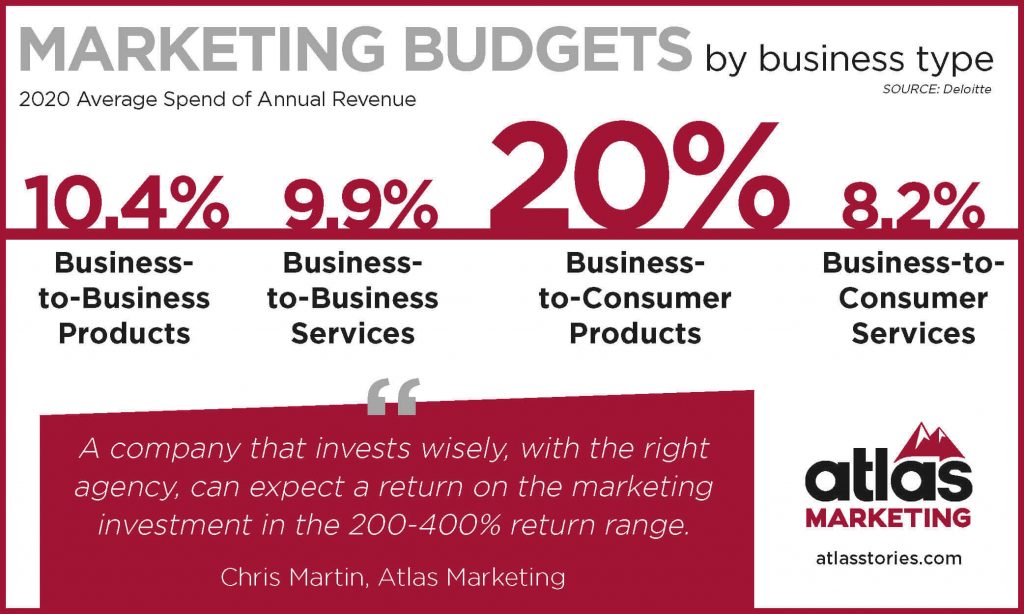Marketing budget – How much should companies spend on marketing?

Setting a marketing budget can be more difficult than budgeting for other expenses. Marketing is not a fixed cost, unlike rent and salaries. Budgets are set based on the anticipated return and vary widely by industry.
In the business world, that means buying raw materials to make products and paying employees to manufacture those products or provide services. And it means spending money to market those products and services to consumers and other businesses.
Investment versus cost
There’s an old adage that says you have to spend money to make money.
Chris Martin, president of Atlas Marketing said, “Establishing a marketing budget can be difficult, but the best method for determining your marketing investment is to consider expectations. Understanding that customers need to see your product or service multiple times before they make a decision requires an investment.”

Decision-makers get into trouble when they only focus on the cost. Investments generate a return and a strategic marketing budget must create positive returns.
11 percent of total corporate budgets are spent on marketing according to Deloitte. That rate has been relatively steady over time. The amount can vary widely, though, based on the market and targets.
Marketing budgets for business-to-business products were 10.4% of total budgets on average while marketing budgets for business-to-business services were 9.9% of total budgets.
Marketing spending on business-to-consumer products averaged 20% of total budgets, with business-to-consumer services averaging 8.2%, according to Deloitte.
Spending on digital marketing has been rising significantly, especially on social media, while spending on traditional advertising has been relatively steady.
What should be in a marketing budget?
So, what goes into a marketing budget? In addition to direct expenses such as advertising campaigns and brand management, costs can include marketing and sales employees as well as marketing analytics and research. Training can be another expense, along with any associated overhead costs. Expenses incurred for participating in community events or volunteering also should be considered marketing.
“A company that invests wisely, with the right agency, can expect a return on the marketing investment in the 200-400% return range. Although marketing is considered overhead, a return of that magnitude increases revenue and profits,” Martin added.
Marketing costs will vary over time, for good reason. Companies that are in the startup phase will spend more to introduce themselves to their marketplace and tell their stories. Companies that are rebranding themselves, or launching new brands, products or services, also will have to bump up spending. The same goes for companies that are expanding their sales territories.
Companies that have achieved success and have a well-known and popular brand may not need to spend as much, though they must be cautious not to get complacent.
Invest wisely
While it’s classified as an expense, spending money on marketing should be considered an investment. When done correctly, it will pay off handsomely. During lean times when instincts may be to cut costs, the contrarian view applies to marketing. Strengthening your marketing consistently may be necessary to generate new revenue.
